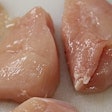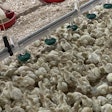On December 2, 2015, the European Commission published the long-awaited Circular Economy Package. FEFAC welcomes the Commission’s proposal to explicitly exclude feed materials from the scope of the Waste Framework Directive 2008/98/EC, to the extent that they are already covered by EU feed legislation.
This proposal honors a longstanding call from the European feed industry for more legal certainty, which will facilitate discussions with national authorities on the interpretation of the legal “non-waste” status of certain feed materials. The clarification is in line with FEFAC Vision on Feed Safety Management, highlighting the importance of securing the safety and integrity of feed materials throughout the entire supply chain. FEFAC also welcomes Commission’s ambition to potentially step up its involvement in the discussion on sustainable sourcing of feed materials through policy dialogues and partnerships.
FEFAC already contributes proactively to the development of the methodology for measuring environmental footprint of feed production at EU (PEF) and global level (FAO LEAP partnership & IFIF-coordinated Global Feed LCA Institute), which will increase the visibility and transparency of circular economy benefits at consumer level. FEFAC’s input to the PEF is focused on the recently approved draft Feed PEFCR (Product Environmental Footprint Category Rules) developed in the context of the EC Environmental Footprint pilot phase. FEFAC fully shares the Commission’s expectation that harmonized rules will allow for more trustworthy communication on the environmental performance of animal products.
FEFAC President Ruud Tijssens feels the ambitions outlined in the circular economy package match the European feed industry’s commitment to safe and sustainable feed production. “As experts in resource efficiency we see an important role for our industry in the food chain circular economy as we continue to develop new tools for safe and sustainable feed allowing our sector to further reduce feed conversion rates. It is thanks to our nutritional know-how that co-products of the food and biofuel industry, can be sustainably valorized as feed chain resources, thus contributing to the reduction of the environmental footprint of livestock production.”

















